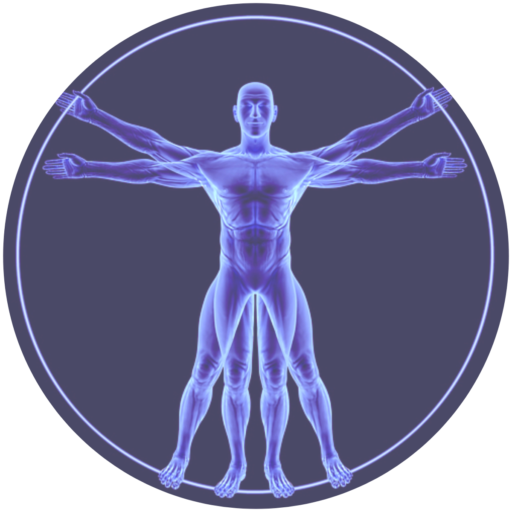Learn More about
Fascial Stretch Therapy
Fascial Stretch Therapy, offered by our experienced massage therapists in Metairie, is a groundbreaking treatment aimed at enhancing flexibility, mobility, and overall physical health. This therapy is carefully crafted to stretch and optimize connective tissues, significantly enhancing the movement and functionality of muscles and fascia. The process is designed to improve systemic body function and support physical wellness comprehensively.
How FST Works
FST is a distinctive therapy carried out by certified therapists, focusing each movement and stretch on isolated muscles and joints to alleviate chronic pain and improve the range of motion. Our therapists employ specialized techniques that gently pull and manipulate the body to release tension directly at the joint and tissue level. This method is particularly effective in reducing back pain and enhancing posture, contributing to a healthier, more aligned body.
Assisted Stretching
During a session of FST, therapists utilize straps to stabilize parts of the body that are not being actively treated, ensuring precise and isolated fascial stretching. This methodical approach ensures a focused and highly effective treatment, optimizing the client’s experience and therapeutic outcomes. Sessions are brief yet transformative, often described as providing ‘minutes to a new body therapy,’ quickly enhancing how the body feels and functions.
Communication and Comfort
Our therapists maintain close communication with clients throughout each session, ensuring the therapy is both comfortable and efficacious. Pain is not an objective; rather, the focus is on enhancing mobility without causing discomfort, highlighting the importance of safety and client care. This attentive approach helps to foster an environment of trust and effectiveness, crucial for successful therapeutic outcomes.
Fascia Stretch For Muscle Health
This specialized therapy directly targets muscle groups along with connective tissue, promoting better circulation, quicker recovery, and increased muscle performance. By focusing on the intricate relationship between muscles and fascia, FST helps to alleviate the tightness and restrictions that lead to discomfort and limited movement. Regular sessions contribute significantly to the maintenance of healthy, resilient muscles, especially important for those who lead active lifestyles or are recovering from muscle-related injuries.

The Science Behind FST
Developed under the guidance of Ann and Chris Frederick at the Stretch to Win Institute, FST integrates deep understanding of the connective tissue’s role in health and mobility, utilizing cutting-edge science to inform every therapy session.
Fascial Stretch Therapy at NOLA Stretch is more than just a treatment; it’s a transformative experience for the body, guided by expert therapists committed to the health and well-being of each client. Join us to experience how a tailored fascial stretching session can make a lasting difference in your life.
For a flexibility makeover, weekly sessions for 4-6 weeks are recommended then taper off to maintenance.
Improvement will be seen with one session, but clients that get regularly stretched see greater improvements that last longer.
*Clients report feeling lighter, taller and able to move easier.
Benefits of Fascial Stretch Therapy:
- Improves Flexibility: Targets the fascia and muscles to increase flexibility and reduce stiffness.
- Enhances Mobility: Helps clients achieve greater mobility and freedom of movement, particularly beneficial for athletes and those recovering from injuries.
- Reduces Pain: Effective in managing chronic pain, particularly in the back and joints.
- Optimizes Athletic Performance: Athletes can train harder and recover faster due to improved nerve function and muscle recovery.
- Educates the Body: Helps reeducate the muscles and fascia about their natural range of motion and posture.

Most Common Questions
- Superficial fascia, which lies directly below the skin and aids in attaching the skin to underlying tissues.
- Deep fascia, which surrounds and separates muscles, bones, and other internal organs, facilitating movement and providing structural support.
- Visceral (or subserous) fascia, which surrounds the internal organs, providing them with structure and support, while allowing movement and flexibility.
Fascial release often feels like a gentle stretching of the connective tissue that can lead to a sense of relief and relaxation. It may initially cause a mild discomfort, especially in areas where the fascia is very tight, but this sensation typically subsides, leaving the area feeling looser and more mobile.
Almost anyone can benefit from fascial stretch therapy, especially those experiencing chronic pain, athletes seeking improved performance and recovery, individuals with limited mobility, and those looking to enhance their overall flexibility and wellness. It is also beneficial for those recovering from injuries or surgeries as part of a rehabilitation program.
Signs of tight fascia may include a sensation of tightness or stiffness in the muscles, restricted mobility, a feeling of compression or pressure, and pain that persists despite typical muscle treatments. Tight fascia may also contribute to postural imbalances and decreased blood flow to affected areas.
Tight fascia can be released through various methods including fascial stretch therapy, myofascial release techniques performed by a therapist, foam rolling, or specific stretching exercises that target the connective tissues. These techniques help to elongate, soften, and realign the fascia, reducing pain and improving mobility.
The frequency of fascial stretch therapy can vary depending on individual needs and goals. For general maintenance and well-being, once a week may be sufficient. For specific issues or goals, such as improving flexibility or recovering from an injury, sessions might be more frequent, initially 2 times a week, tapering off as improvements are noted.
Results of fascial stretch therapy typically include increased flexibility and joint mobility, enhanced athletic performance, reduced pain, improved posture, and a greater sense of physical balance and overall well-being. Regular sessions can help maintain these benefits and prevent future tightness and discomfort.

